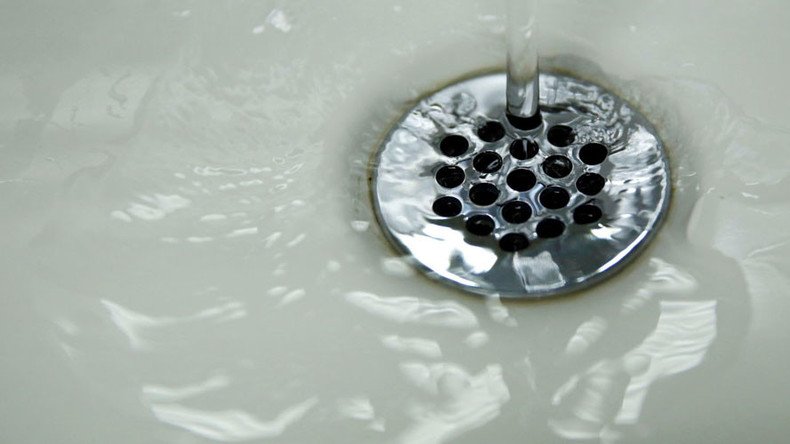Toxic lead water found at 3 state-run centers for disabled in Texas

Dangerously high levels of lead have been discovered in the water at three state-run centers for the disabled in Texas, exposing hundreds of people to potential poisoning, authorities said.
Water at three out of the 13 state-run centers for the disabled tested positive for lead levels above and beyond what the US Environmental Protection Agency considers the threshold for action, the Dallas Morning News reported. They are the State Supported Living Centers in Brenham, El Paso, and San Angelo.
All three facilities recorded water with lead levels higher than 104 parts per billion – that’s at least seven times higher than the 15 parts per billion the EPA considers safe for consumption. At one unnamed facility, a test showed lead levels of 266 parts per billion.
“The water is not safe to drink,” Virginia Tech researcher Siddhartha Roy, who helped test lead-contaminated water in Flint, Michigan, told the Dallas Morning News. “These numbers clearly indicate a lead in water problem at least in some of the faucets where the samples were taken.… More testing at the other faucets is needed.”
Over 2,500 Georgia children tested positive for lead poisoning last year https://t.co/9zsapDCG4mpic.twitter.com/HnftRbucY6
— RT America (@RT_America) May 4, 2016
Testing has so far shown that water at the 10 remaining state-run centers is safe to drink. About 590 disabled Texans live in the three affected facilities. The source of the lead is still being determined, but it could be that the centers feature lead pipes because they were built before 1986, when lead was banned from use in plumbing.
Lead is a neurotoxin can that can cause a number of problems in people exposed to it. It’s most dangerous for children ‒ it can cause permanent brain damage in young kids ‒ but adults who are exposed can suffer abdominal pain, nausea, and depression, according to the US Centers for Disease Control and Prevention. Prolonged exposure can also lead to high blood pressure, kidney disease, heart disease and reduced fertility.
At the Brenham center, Director Iva Benson has informed the families of those living there about the situation. She said the staff is being trained to look out for lead exposure symptoms, and that bottled water has been delivered for drinking, cooking and brushing teeth.
“I want to assure you we are taking steps to ensure your family member is safe and corrective actions are underway at the center,” Benson wrote in a letter, according to the Morning News.
Now, the Texas Department of Aging and Disability Services is trying to determine whether it needs to test residents and staff for poisoning.
The issue of lead contamination has garnered national interest since the crisis in Flint was revealed. There, officials tapped a local river for its drinking supply, but failed to properly treat the water, which leached lead as it traveled through pipes and into homes. The city’s entire population is considered to have been exposed, including children.
Since the issue has attracted more attention, high lead levels have been found elsewhere in the nation, including hundreds of schools. About 278 schools in the US have tested for lead levels above the EPA’s safety threshold since 2013, AP reported. Over the last year alone, 64 schools tested for unsafe water.













